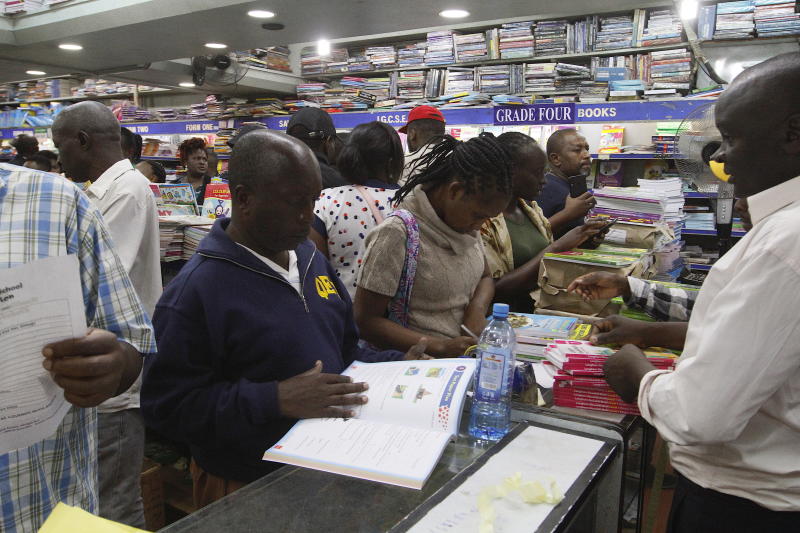Parents and their children Savanni's Bookshop, a long Latema road, Nairobi for the last minute shopping on May 4, 2022 [Jenipher Wachie, Standard]
×
The Standard e-Paper
Fearless, Trusted News

Parents and their children Savanni's Bookshop, a long Latema road, Nairobi for the last minute shopping on May 4, 2022 [Jenipher Wachie, Standard]
As Form One students start reporting to their respective schools, many principals have defied a government directive to reduce admission costs.